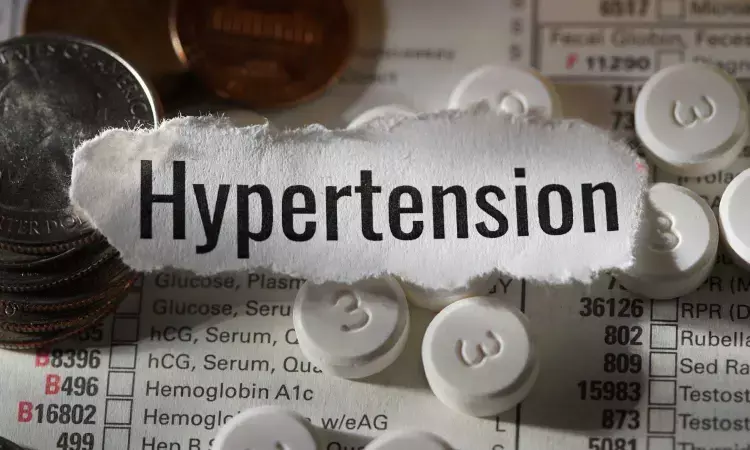- Home
- Medical news & Guidelines
- Anesthesiology
- Cardiology and CTVS
- Critical Care
- Dentistry
- Dermatology
- Diabetes and Endocrinology
- ENT
- Gastroenterology
- Medicine
- Nephrology
- Neurology
- Obstretics-Gynaecology
- Oncology
- Ophthalmology
- Orthopaedics
- Pediatrics-Neonatology
- Psychiatry
- Pulmonology
- Radiology
- Surgery
- Urology
- Laboratory Medicine
- Diet
- Nursing
- Paramedical
- Physiotherapy
- Health news
- Fact Check
- Bone Health Fact Check
- Brain Health Fact Check
- Cancer Related Fact Check
- Child Care Fact Check
- Dental and oral health fact check
- Diabetes and metabolic health fact check
- Diet and Nutrition Fact Check
- Eye and ENT Care Fact Check
- Fitness fact check
- Gut health fact check
- Heart health fact check
- Kidney health fact check
- Medical education fact check
- Men's health fact check
- Respiratory fact check
- Skin and hair care fact check
- Vaccine and Immunization fact check
- Women's health fact check
- AYUSH
- State News
- Andaman and Nicobar Islands
- Andhra Pradesh
- Arunachal Pradesh
- Assam
- Bihar
- Chandigarh
- Chattisgarh
- Dadra and Nagar Haveli
- Daman and Diu
- Delhi
- Goa
- Gujarat
- Haryana
- Himachal Pradesh
- Jammu & Kashmir
- Jharkhand
- Karnataka
- Kerala
- Ladakh
- Lakshadweep
- Madhya Pradesh
- Maharashtra
- Manipur
- Meghalaya
- Mizoram
- Nagaland
- Odisha
- Puducherry
- Punjab
- Rajasthan
- Sikkim
- Tamil Nadu
- Telangana
- Tripura
- Uttar Pradesh
- Uttrakhand
- West Bengal
- Medical Education
- Industry
TyG Index may Predicts Severe Coronary Stenosis in patients with H-Type Hypertension with CAD: Study

Researchers have found in a new study that The TyG index is an independent risk factor for the degree of coronary stenosis and a better predictor in patients with H-type hypertension combined with coronary artery disease.
The study conducted at Wuhan Third Hospital delves into the prognostic significance of the Triglyceride-Glucose (TyG) index in individuals diagnosed with H-type hypertension and coronary artery disease. The findings shed light on the association between TyG levels and the severity of coronary artery stenosis, emphasizing its potential as a robust predictive tool for cardiovascular risk.
Cardiovascular disease (CVD) is the leading cause of mortality worldwide, with China experiencing its devastating effects as the primary cause of death and premature mortality
This study was published in the journal BMC Cardiovascular Diabetology by Zhengwen Xu and colleagues. The cohort comprised 320 inpatients diagnosed with hypertension and coronary artery disease. The key findings of the study were:
Correlation with Stenosis Severity:
• Positive correlation observed between elevated TyG levels and increased susceptibility to severe stenosis in H-type hypertension patients.
• Odds Ratio (OR) for severe stenosis: 4000 (95% CI 2.411-6.635, p = 0.0001).
• OR for multivessel disease: 1.862 (95% CI 1.036-3.348, p < 0.0001).
Predictive Ability of TyG Index:
• TyG index demonstrated superior predictive ability for severe coronary stenosis in H-type hypertension patients:
• Area Under the Curve (AUC): 0.888 (95% CI 0.838-0.939, p < 0.0001).
• Compared to AUC in patients without H-type hypertension: 0.615 (95% CI 0.494-0.737, p < 0.05).
The study concludes that the TyG index is an independent risk factor for the degree of coronary stenosis, particularly in patients with H-type hypertension combined with coronary artery disease. The robust association between elevated TyG levels and severe stenosis underscores its potential as a valuable tool for cardiovascular risk assessment in this specific patient population.
Reference:
Xu, Z., Chen, P., Wang, L., Yan, J., Yan, X., & Li, D. Relationship between TyG index and the degree of coronary artery lesions in patients with H-type hypertension. Cardiovascular Diabetology,2024;23(1). https://doi.org/10.1186/s12933-023-02013-0
Dr Riya Dave has completed dentistry from Gujarat University in 2022. She is a dentist and accomplished medical and scientific writer known for her commitment to bridging the gap between clinical expertise and accessible healthcare information. She has been actively involved in writing blogs related to health and wellness.
Dr Kamal Kant Kohli-MBBS, DTCD- a chest specialist with more than 30 years of practice and a flair for writing clinical articles, Dr Kamal Kant Kohli joined Medical Dialogues as a Chief Editor of Medical News. Besides writing articles, as an editor, he proofreads and verifies all the medical content published on Medical Dialogues including those coming from journals, studies,medical conferences,guidelines etc. Email: drkohli@medicaldialogues.in. Contact no. 011-43720751


